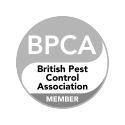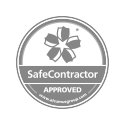Commercial Pest Control Solutions
At Contego, we are committed to delivering a true partnership approach to pest control. We work with you to eradicate pest risk, through risk ratings, actions, recommendations and a transparent approach to service delivery.
why PEST control is crucial
Health Protection:
Rodents can transmit diseases to humans, posing serious health risks to anyone who comes into contact with contaminated food, droppings or saliva.
Structural Damage Prevention:
Identifying a mice or rat infestation can save you some costly repairs in the future and prevent further damage from happening.
Peace of Mind:
We understand that the presence of rodents can be distressing and disruptive, which is why professional pest control can help you feel confident in your surroundings again.
Methods That Work For You
When it comes to commercial pest control, we have the most effective solution to guarantee your
site is rodent free, depending on the challenges you face.
RODENT-FREE GUARANTEE
Our Proven Pest Control Approach
We understand that effective rodent control is not a one-size-fits-all solution. Every industry and site present unique challenges that require customised pest management strategies. We tailor our approach to address the specific needs and requirements of our diverse clientele, ensuring comprehensive protection against rodents.

Knowing The Signs
Rodent infestations can get out of hand fast and recognising the signs can help you know when it's time to take the first step, and call in a professional pest control company. Here are some of the signs you can be on the lookout for:
Think Your Site Is Showing These Signs?
If you have signs of a rodent infestation, it is important that you take action today! Rodents can quickly get out of hand without the help of an expert. Take the first step & contact us for a reactive call out – our team will be with you in less than 48 hours.
Don’t Have a Rodent Problem?
Stay Ahead of the Pests with Pest Proofing
If you're not currently experiencing pest problems, you can still benefit from our expert services by taking a proactive approach. Our team can devise a plan to suit your needs, ensuring a pest free environment for the future.

Let's talk common
troublemakers
PEST ID
RATS:
Rats thrive in urban settings, where food and shelter is at an abundance. Recognisable by their by their coarse fur and long tails.
Did you know rats can squeeze through a hole that is 1 inch in diameter.

pEST ID
MICE:
Mice are prevalent in urban environments, where food and nesting sites are plentiful. Identifiable by their small size and large ears.
Did you know mice can squeeze through a hole that is 1/4 inch in diameter.

Common Rodents
Need commercial pest control?
Concerned about the threat of rodents in your warehouse or food establishment? Partner with us to benefit from our specialised solutions and expertise in effective pest control, ensuring your business is safeguarded against potential infestations.
how we differ from other companies
Data-driven Approaches
We use smart technology like remote monitoring systems to track rodent activity in real time, providing us with insightful data to optimise your existing compliance & pest control strategy.
Environmentally Conscious
By focusing on a proofing first approach, we have minimised our use of toxic chemicals and instead prioritise using humane and eco-friendly options.
Comprehensive Risk Assessments
Understanding your environment, is crucial when implementing a tailored plan that suits your needs. This allows us to determine what methods we can use and optimise the strategies put in place.
Frequently Asked Questions
Think Your Site is Showing Signs of A Rodent Infestation?
Don’t wait until the problem escalates. Take proactive steps today to safeguard your facility and ensure a pest-free workplace. Contact us now for a thorough inspection and tailored rodent control solutions to address and potential infestations effectively.




















